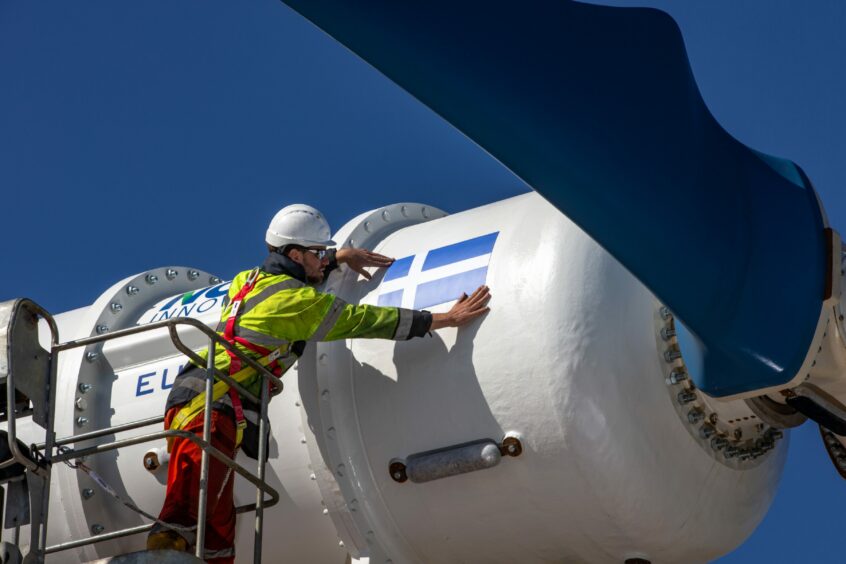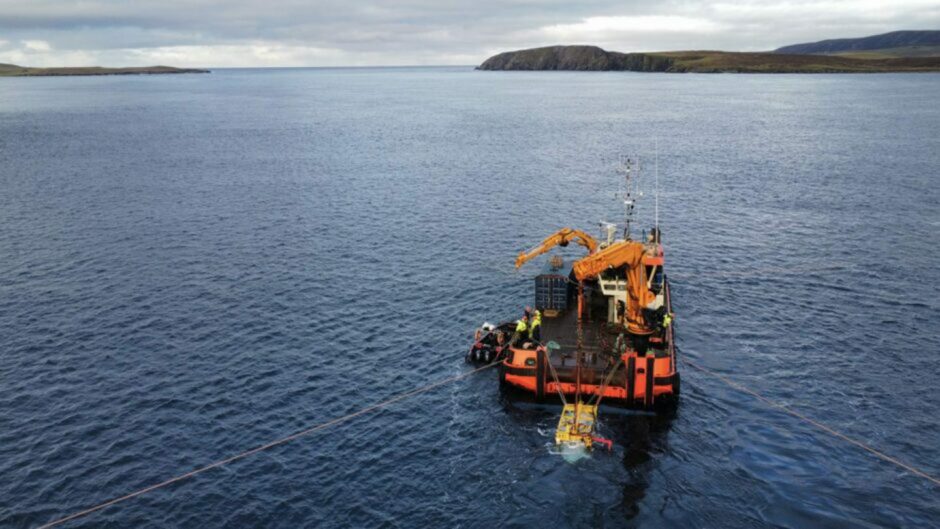
Nova Innovation has secured EU funding for a 4MW tidal energy farm off Orkney that will be home to the largest number of tidal turbines anywhere in the world.
Nova will now lead a pan-European consortium to help develop the 16-turbine scheme, dubbed SEASTAR, enabling the start of “mass manufacturing” of units at its headquarters in Edinburgh.
Unveiled at COP28 in the UAE – where Nova will attend as part of the Scottish delegation – the firm said progress on the scheme would be “a crucial step” in unlocking the tidal sector as a new global source of renewable energy.
Scotland’s First Minister Humza Yousaf added: “Scotland is a world leader in marine renewable energy as a result of consistent and committed support from the Scottish Government together with the expertise, investment and innovation of the industry.
“Nova’s project at the European Marine Energy Centre (EMEC) in Orkney will accelerate the development of a new industry and helps to show how Scottish ingenuity is helping us to capture the immense potential of renewable energy from our seas and oceans.”
SEASTAR array
Some 16 turbines representing 4MW of generating capacity would be sited at SEASTAR, in waters off the EMEC test centre.
Work on the scheme will start over the next month, with completion eyed in 2026.
Nova – which is both a turbine manufacturer and asset operator – also built the Shetland Tidal Array – the world’s first such installation – which has been in operation since 2016. Since that time, the company says it has refined its technology and slashed the cost of tidal energy by some 40%.
Scottish suppliers reportedly make up around 60% of the turbine content, including blades which will be manufactured by Shetland Composites Ltd.
Other project partners include EMEC, Ocean Energy Europe, Leask Marine, Wood Group, SKF, DLA Piper, Renewable Risk Advisers, Primo Marine, Wave Venture and environmental consultants, Nature Positive.
The roughly £17.3m in project funding comes from the EU’s Horizon Europe programme, which it’s hoped will reinforce a “collaborative partnership” between Scotland and Europe.
In addition to generation capacity, the project is also aimed at creating “high-quality green jobs” – the number of which is currently unconfirmed – and enhance Europe’s position as a frontrunner in the marine energy supply chain.
The 16 new turbines will reportedly generate the equivalent of around 10% of Orkney’s power demand, though Energy Voice understands discussions are ongoing around the possibility of installing dozens more units in future.
Nova’s current flagship turbine is sized at 250kW, however plans are also afoot for a 500kW model.
Nova chief executive Simon Forrest said: “This is a huge win for Nova and a huge vote of confidence for the tidal energy sector.
“To be awarded the EU’s flagship tidal energy project with turbines made and deployed here in Scotland, using a pan-European supply chain, is testament to our track record of success.
“The SEASTAR project will see more turbines installed than all other current deployments worldwide combined. This will enable Nova to start mass manufacturing, deploy at scale and continue to drive down the cost of tidal energy.”
The firm currently has projects in Scotland, Wales, France, Canada and Indonesia, and last year secured a major option agreement to develop a 15-MW tidal array at Yell Sound, between the islands of Yell and Bigga.
Other pilot schemes could see Nova turbines used to produce green hydrogen and oxygen for use on Shetland – including by the SaxaVord UK Space Port on Unst.
 © Supplied by Nova Innovation
© Supplied by Nova Innovation